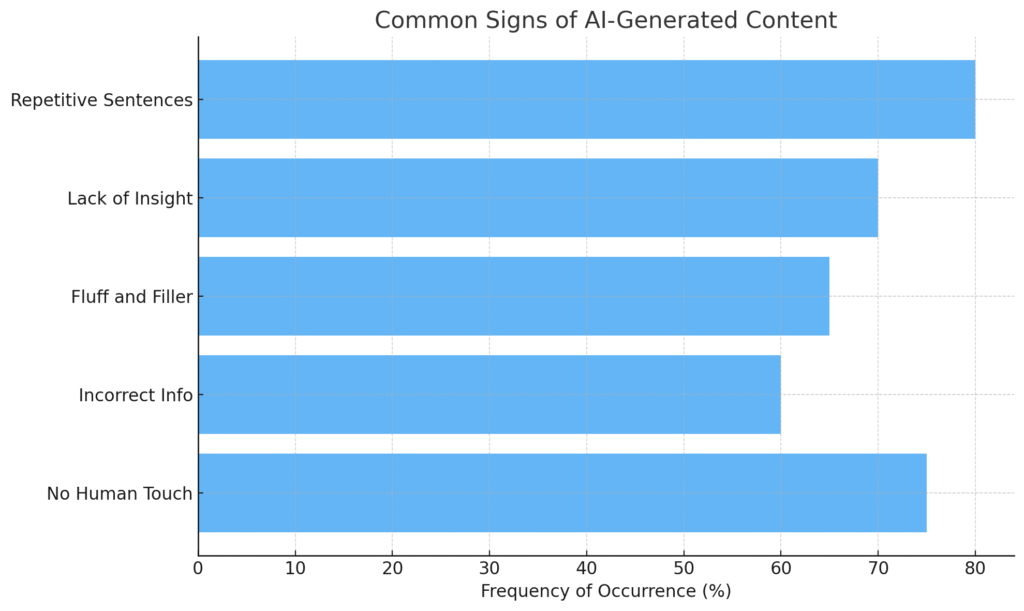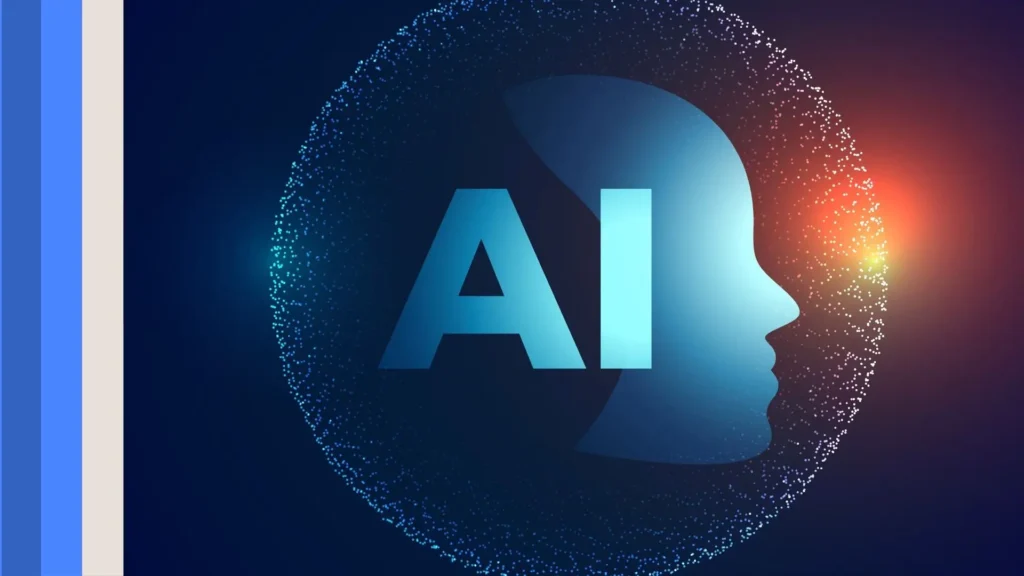Due to the emergence of AI writing assistants such as ChatGPT, Jasper, and Copy.ai, an increasing number of individuals are turning to artificial intelligence to write articles, emails, descriptions of products, and blog posts. Such tools allow creating something fast and efficient. However, they also provoke a major question, such as whether it is possible to tell whether the content of Google is AI-written.
It is a significant issue to all those who make online publications. Website owners, bloggers, SEO supervisors and digital marketing people are eager to understand how AI-generated content will impact search rankings. In this article, we will describe what AI content is, the way Google considers it, and the ways of how you can safely use AI and create the content that will rank high.
What Is AI-Generated Content?
It is written text generated by machines due to the usage of artificial intelligence. AI tools exploit large volumes of data and sophisticated algorithms and algorithms to generate writing subtly and style that appears to be written by a human being. They are tools which are trained to analyse the language patterns and sentence structure and grammar.
Among the well known AI writing tools are:
- ChatGPT: It is conversation-style writing and content developing.
- Jasper AI: The tool is associated with marketing copy and long-form articles.
- Copy.ai: Assists in writing web-copy, adverts and email copy.
- Writesonic: An effective tool to come up with workable SEO friendly content in a short time.
These tools help people to accelerate the process of content generation. They are fantastic in the idea creation process, outlining and even actual creation of the entire blog post. But they are not infallible and can be wrong, copying the same text or providing inaccurate answers.
Can Google Really Detect AI Content?
To put it in the shortest answer: yes, Google may frequently realize that a text was written artificially by AI, and it does not necessarily penalize it.
Google has not constructed a specific instrument to search for AI writing. Rather, it employs complicated algorithms that access the value of a webpage. Google can easily place it lower in case the content was not helpful or crammed with keywords. This is regardless of who is writing the content, the person of an AI.
Google posted a critical update in February 2023. It stated:
- Use of automation (such as AI) to generate content is not against our rules, unless such generation is used to change search results.
- This implies that you can apply AI writing tools provided that you generate beneficial, unique, and valuable content. With Google, punishment is added to content that is put up just to cheat the system or it is used to gain rankings unjustly.
How Google Judges Online Content
The system is referred to as the E-A-T which Google determines the quality of its content. E-A-T is shortened as:
- Experience: Is the author knowledgeable of the topic first hand?
- Quality: Does the information provided correct and is it written by a person who is experienced in that specialty?
- Authoritativeness: Is the site reputable, or the author reputable?
- Credibility: Is the information reliable to present truthful and fair information?

This mechanism assists Google to determine the context of articles to appear in top search findings. The content should still be human and AI written but as long as it is up to these standards.
As an example, a personal blog of a healthcare worker where a real experience of managing stress is described may have a good ranking. Conversely, an artificial intelligence-generated article discussing some small-advice over and over again without containing some insight to have significance might not work well.
How Google Might Spot AI Writing
Google might not mark a piece of content with the label indicating that it has been composed using artificial intelligence, but it will be able to find some indicators that the text was not written by a human or has not passed a thorough review. Those signs are:
1. Repetitive Sentences
Sentences of AI tools can be repeated. When you repeat the same sorts of phrases, Google will see you as robotic.
2. Insight Missing
The general information can be written with the help of AI, yet AI does not have personal experience or know-how. This may render the material to be too smack.
3. Fluff and Fillers
In some cases there will be AI content that will appear long but says very little. Google is able to pick out shallow content to which there is no value.
4. Incorrect Information
The AI models can produce mistaken or out-dated facts. This will lower trustworthiness and credibility of your site.
5. No Author attribution
Anonymous content, no background and no expert source can be seen as less reliable, even though it can be factual.

How to Use AI for SEO-Friendly Content
It you are going to continue writing content with AI and stay in Google top, here are some clever techniques to remember:
Review and Edit All the time
Before publishing content that is created through the use of AI, checking it is a decent idea. Peruse it, make grammatical corrections, make it clearer, ensure accuracy of facts.
Put a Human Touch
Add to it some real-life examples, personal stories, or opinions, which AI is not capable of creating. This makes your content more personal and real.
Search Intent Optimization
Know what your audience wants and provide answers in an easy way. The content should be simplified with the help of bullet points, headings and lists.
Author and Sources
Write the name of the author or give a professional reference. This establishes credibility and authority in what you are saying.
Don not use Spamming Methods
Do not create hundreds of mediocre articles with the help of AI. Avoid keyword stuffing in or duplicate the same frames over other pages.
What Can Occur When You are Negligent with AI?
Interactions can get your SEO page penalized and result in:
- The decrease in search positions
- They lower traffic to your site
- Reduced engagement by the user
- Google spam filter’s penalty may be one of the possibilities.
That is why one should not consider AI as the substitute of real human thinking, but treat it as a supplementer.
What the Future Holds for AI and SEO
AI is evolving fast, and so is Google. In the future, search engines may:

- Improve their ability to recognize robotic or fake-sounding content
- Require more transparency about who wrote the content
- Focus more on content written from first-hand experience
- Promote websites that clearly show expertise and trust
Writers and marketers who use AI tools wisely—without ignoring quality—will have the most success. Combining technology with human intelligence is the best approach.
Conclusion
So, can Google detect AI content? Yes, especially if it lacks quality, originality, or usefulness. Yet the positive aspect of the matter is: Google does not automatically penalize AI-written material. The most essential thing is how beneficial and reliable it is.
If you’re using AI to help write your content, make sure to review it carefully. Add value, fact-check it, and bring in your personal experience. Google rewards content that helps users, whether written by humans or with the assistance of AI.
In the end, the goal should always be the same—create content that serves the reader. If you do that, your content has a great chance of performing well, no matter how it was made.
FAQs
No, the content generated by AI is not banned by Google. It simply demerits the spammy or content produced specifically so as to cheat the ranking system. Assuming that your content is useful and correct, Google will take it in stride, regardless of whether it is created by a human or artificial intelligence.
Use AI to assist with writing drafts, outlines, or ideas. Then, add your own insights, fix any errors, and make sure it sounds natural and engaging. This will help ensure your content is high quality and SEO-friendly.
Yes! Provided that it is high-quality content in accordance with Google, it will not be any less ranking than the human-generated content. The AI tools have already been used by many businesses to help with creating the content, although it allows achieving good SEO outcomes.
Yes, tools like Originality.ai, Copyleaks, and Writer.com AI Detector can help you see whether content appears machine-generated. These tools aren’t perfect, but they can help spot overly robotic writing.






